Why study International Relations and Political Science at Flinders?
Explore politics, power and policy in the digital age.
Gain the knowledge and skills to understand and drive political, social and economic change. Study the Bachelor of International Relations and Political Science at Flinders to learn how policies are developed and implemented, preparing you for careers in government, non-government and not-for-profit organisations in Australia and abroad.
When you study at Flinders, you'll experience an innovative curriculum, guided by experts with extensive experience working in government, public sector, and the wider community. You'll explore topics across public policy, global political change, digital governance, and even outer space governance, discovering the history and current landscape of space law and policy. Or, take your passion for International Relations and Political Science to other industries with a combined degree in areas such as languages, laws or criminology.
Plus, you'll gain real-world experience with placements, including opportunities to undertake the once-in-a-lifetime Washington Internship Program, or with local and state government in South Australia. Plus, you can advance your career with postgraduate study that will give you the knowledge, policy skills and confidence to move into leadership positions.
Join our community of Flinders graduates who work in fields such as international government and non-government organisations, diplomacy, foreign affairs, journalism, defence, intelligence, and more.
Tackle global challenges at Flinders University. Explore your study options at Bedford Park, our City Campus, and online.
STUDY FOR TOMORROW
WITHOUT MISSING TODAY.
Flexibility from
the start
Practical and constantly connected
Engaging, above-standard learning
Supported on
every level
Study online
Explore our range of undergraduate and postgraduate courses available online, including:
No. 1 in SA
in Political Sciences.
(2022 Academic Ranking of World Universities, public SA-founded universities only)
No. 1 SA university
for learner engagement, skills development, student support and starting salary.
(The Good Universities Guide 2022 (undergraduate), public SA-founded universities only)
No. 1 SA university
for overall educational experience and full-time employment.
(The Good Universities Guide 2022 (postgraduate), public SA-founded universities only)
Flexibility to study your way.
Stand out from the crowd. Study a combined degree.
Interested in more than one area?
Flinders has a variety of International Relations and Political Science combined degree options that allow you to pursue multiple passions and broaden your career opportunities.
By combining studies in Laws and Legal Practice with International Relations, you will develop the professional legal skills to prepare you for a job in the legal profession and gain an understanding of how justice and society influence each other.
The combination prepares you for a broad range of careers in law but also government, leadership and educational settings.
By combining studies in Business with International Relations, you will combine practical learning based on solving real-world business problems with the skills to analyse and understand key issues that businesses deal with every day.
This combined degree provides you with the fundamental knowledge, contemporary case studies, workplace skills development and live industry experience to pursue a global career in business.
By combining studies in Arts with International Relations, you will build your knowledge base in the areas you’re passionate about, develop the complex critical thinking and problem solving skills required to solve some of the world’s greatest challenges, and learn transferable skills that are highly valued in the workplace.
You’ll develop world-changing, future-proof skills in a world that’s changing fast. Become digitally literate, think outside the box and develop the skills to adapt and take advantage of new opportunities.
By combining language study with international relations and political science, you will develop unique global insights, based on a grounding in politics, public policy and international relations, all while studying a language and learning about its culture. Choose from French, Indonesian, Italian, Modern Greek or Spanish.
This combination prepares you for a range of careers internationally and locally across many sectors.

Languages was advertised as one of the degrees that Flinders’ partner Mitcham Council was looking for in their 12-week graduate program, so I applied and ended up getting the job.
I’m now moving to Canberra to start working with the Department of Foreign Affairs & Trade in their graduate program. I believe having both the language degree and experience at Mitcham Council was integral to being accepted into the program and helped to make me stand out from other international relations students.
Isabella Stocco-Bradley, Bachelor of Languages (Spanish Major & Italian Minor)/Bachelor of International Relations
What to expect at Flinders
A focus on the future
To address emerging global and local challenges in government, business and society, you'll need an innovative mindset. After studying at Flinders, this will be second nature.
Work-ready skills
You will gain the skills and knowledge employers are looking for - including policy writing, strategic analysis, information management and reporting, professional teamwork and more.
Global experiences
Flinders has links with world-class universities and organisations for exchange programs or internships, including our highly unique Washington Internship Program.
Internship Programs
Our students have access to incredible opportunities that will show them how politics works - from the inside.
Washington Internship Program
Since 2000, Flinders has sent over 127 students on two programs which provide a 8-week and 17-week placements in the US Congress. Students work full-time in the office of a member of the United States Senate or the US House of Representatives.
South Australian Parliamentary Internship Program
This degree and career enhancing program gives students the opportunity to experience how Parliament operates from the inside, by working attached to the office of a Member of Parliament while completing a public policy research project.
Vienna Space Internship Program
Spend up to 8 weeks in the charming city of Vienna where you'll discover how law and policy can impact human activity in space, with an opportunity to sit in on meetings at the UN Office for Outer Space Affairs.

New Colombo Plan Vietnam Study Tour
From exploring the Cu Chi Tunnels to representing Flinders University in high-level diplomatic meetings, the New Colombo Plan Vietnam Study Tour was a perfect blend of cultural discovery and hands-on learning. Zoe, an honours student who attended, shares how this unforgettable experience has given her a clearer path toward her future in diplomacy and international relations.
Want to know more about Zoe’s two-week adventure? Check out the full story from her perspective.
From Adelaide to DC: Navigating American Politics in a Time of Upheaval
"Interns from Flinders rarely witness a presidential inauguration, even less often experience Washington D.C. after a former president’s passing, and almost never have their start delayed by a snowstorm. Yet, in just our first two weeks, we experienced it all."
Want to know more about Preston’s eight week adventure? Check out the full story from his perspective.

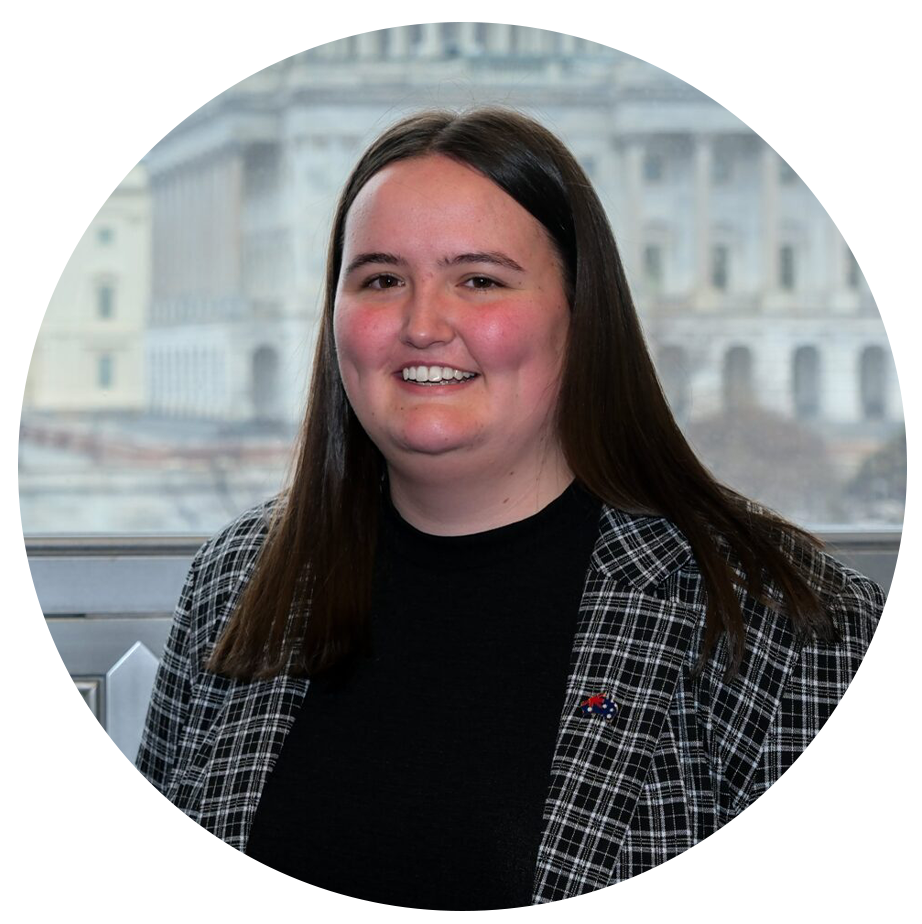
"The internship offered opportunities I never imagined, from attending briefings on international aid, to representing the office in meetings, to connecting with staffers and Australian government representatives at the Embassy."
Alyce Ferme, Bachelor of International Relations and Political Science

"The biggest lesson I learnt was to say ‘yes’ to everything—seizing every opportunity is the key to getting the most out of your internship."
James Henderson Redden, Bachelor of International Relations and Political Science

"The Washington program is truly remarkable... The work I completed as part of the JBC was exceptional and gave me a pragmatic skillset I could immediately apply in the workforce. This I think was the most helpful in my life post-graduation."
Jack Goldsmith, Bachelor of International Relations
Explore
Postgraduate Policy and Government
Learn from the experts
Our teaching team produces curriculum material that has been adopted around the country. They also have extensive experience advising governments, in the professional development of public-sector offices, in working with communities, and in media commentary.

Dr Jessica Genauer
Jessica is a lecturer in International Relations at the College of Business, Government and Law. Jessica's research interests include conflict resolution, threat perceptions, and post-conflict institution-building. Jessica also focuses on innovative educational methods at the tertiary level. Jessica is particularly interested in participatory educational methods to develop interpersonal competencies such as leadership, cultural awareness, communication, negotiations and decision-making.
Jessica hosts a podcast "War in Ukraine: Update from Kyiv" with updates and analysis of the Ukraine conflict, as well as deep dives into issues of warfighting, strategy, negotiations and leadership.
Interested in the Russia-Ukraine war? Listen to Jessica's podcast, War in Ukraine: Update from Kyiv to explore the topic.
Dr Leoni Connah is currently a Lecturer in Government at Flinders University. Her PhD and ongoing research explores the changing nature of the conflict in Kashmir in recent years and the impact this has had for regional South Asian security, as well as human security. Leoni has broader research interests postcolonial politics, human rights, feminism, and conflict studies.
Qualifications
- PhD International Relations: Lancaster University, UK.
- MA Religion and Conflict, Distinction: Lancaster University, UK.
- BA (Hons) Religious Studies, First Class Honours: Lancaster University, UK.
Key responsibilities
- Student Success Lead for Government
- Course Coordinator: Master of International Relations
- Teaching Lead for Jeff Bleich Centre for Democracy and Disruptive Technologies

Rob believes political science research tells us how politics is changing and when citizens might want a new kind of politics.
“There’s so much we don’t yet know about political science,” he says. “Democracy is changing with the upsurge of populism, the decline in trust and the rise of China. Centre-left political parties are experiencing a period of retreat and decline. The modern party system in many countries is changing beyond recognition.”
“There are political problems we’re not even close to fully understanding or solving yet," Rob adds. “Our whole society depends on future knowledge and scholarship to help us better understand political change, especially in the face of the mounting climate emergency.”
Rob's current primary research, therefore, looks at the crisis of social democracy, trying to draw lessons and understanding about the decline of the family of centre-left parties. He co-wrote a collection – ‘Why the Left Loses’ CNN used for a special edition program.
He employs humour as a learning tool in class to make students think differently about political science, earning him a 2014 faculty citation for Outstanding Contribution to Student Learning. The interplay between Batman and the Joker helps teach the concept of ‘governance’ and each year he crowns a student monarch of the class to help discuss the sources of political legitimacy.
Rob’s inspired by the quiet fortitude of many MPs, citizen activists, human rights defenders and advocates, his students and Chelsea Football Club, decent coffee, his family, and their ridiculous dog, Mr Brown.

At age 7, Rodrigo's family suspected he'd have a career in research. During a trip to Venice, his father videoed him asking endless questions about what made Venice a Republic and how exactly its political system worked.
It's this natural curiosity for politics and discovering things nobody else knows that has resulted in Rodrigo's award-winning career. In 2018, he was the first Australian political scientist to win the prestigious Young Tall Poppy Science Award. In the same year, he also won the Vice-Chancellor's Innovation in Teaching Award and the Vice-Chancellor's Award for Early Career Researchers.
Rodrigo is currently researching how voters choose leaders in advanced democracies. He has found that a candidate's looks or involvement in scandal can play an important role in the decision-making process, particularly if voters have little information about politics, candidates and elections. His research has a compelling role to play in helping people understand the consequences of their choices and therefore make better decisions.
An inspiring, supportive and innovative lecturer, Rodrigo has been invited to present his work in all corners of the globe. His research is often used by mainstream media in Australia and overseas to explain current events, allowing him to reach a wider audience beyond academe. His best advice to future researchers and students is: “Choose your path carefully. The only way to succeed is to do something you really love and that excites you!”

Josh Holloway is a Senior Lecturer in Government in the College of Business, Government & Law. Josh’s research interests include party politics, digital governance, environmental politics, and democratic resilience to crisis. His research has been published in the European Political Science Review, Government & Opposition, Contemporary Politics, Election Law Journal, Defence Studies, and the Australian Journal of Political Science. He also contributes to two leading textbooks on Australian politics. Josh’s work has attracted highly competitive external funding, and has received domestic and international media coverage.
Josh is an experienced and passionate teacher, whose philosophy centres on inspiring students to take an active role in the co-creation of knowledge through participatory and inquiry-based learning. He contributes to two leading textbooks on Australian politics and public policy, and has published research on industry engagement in public policy teaching. His teaching expertise centres on Australian and comparative politics, digital governance, environmental politics, and public policy. Josh teaches across Government’s undergraduate and postgraduate programs.
In research and teaching, Josh draws on his employment background, having previously worked in the Parliament of South Australia and consulted on federal and state election campaign strategy.
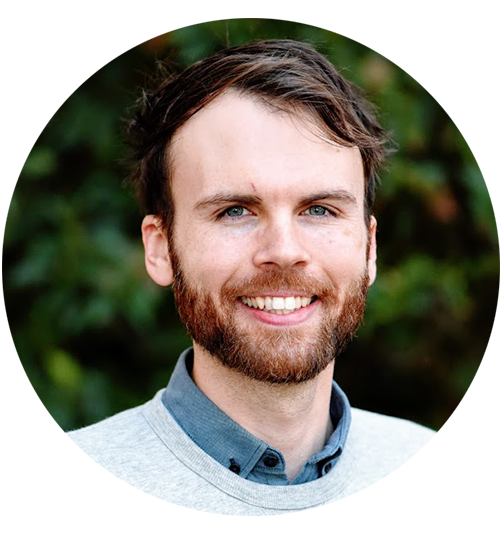
Hongyi Liang is a Lecturer in International Relations at the College of Business, Government and Law. Her teaching and research interests include International Relations, Political Economy, Asian studies, and Chinese Politics. Hongyi received her Ph.D. in Government from the Chinese University of Hong Kong.
Hongyi believes that each student possesses a unique knowledge bank that are shaped by their life experience, and her primary role as a teacher is to facilitate the expansion of their individual knowledge banks. Hongyi would actively engage students by tapping into their prior knowledge, encouraging them to explore and discover knowledge that is meaningful to them, and fostering a classroom environment conducive to idea exchange and discussions.
Hongyi teaches undergraduate, postgraduate, and transnational courses in Flinders Government.
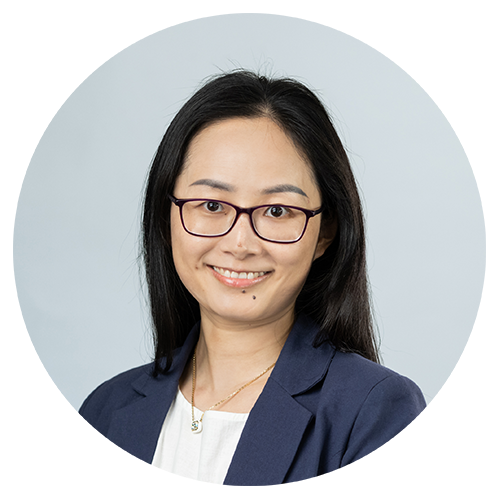
Dr. Intifar Chowdhury is a youth researcher and Lecturer in Government at Flinders University, South Australia. She is passionate about writing to better the political representation of all young Australians in our democracy.
In July 2023, Intifar completed her PhD in political science at the Australian National University's (ANU) School of Politics and International Relations. Her doctoral research tackled the important question of whether young people are turning away from democracy. It comprised a quantitative enquiry on advanced democracies using survey data from comparative databases. Beyond academia, Intifar continually strives to translate her research work into public good: her political commentary on youth politics has appeared in diverse media platforms, including in The Conversation, The Guardian, The Canberra Times, The Ethics Centre, ABC Q&A, Al Jazeera English, the Democracy Sausage Podcast, Triple J Hack, Reuters, Australian Institute for International Affairs and ANU's Policy Forum.
Prior to this, Intifar obtained a double degree in Science (Biochemistry/Genetics) and International Relations (Honours) at the ANU. During her time as a student, Intifar has interned at the Commonwealth parliament, the Canberra Hospital and Wissenschaftszentrum für Sozialforschung in Berlin (WZB). At ANU, she also worked as the Senior Survey Research Officer for a youth longitudinal Post School Destination (GENERATION) survey, conducted by the ANU Centre for Social Research and Methods (CSRM) in collaboration with the Australian Department of Education, Skills and Employment (DESE). In the past years, Intifar has represented ANU research while visiting the LIfBi research centre in Germany, the OECD Education Directorate in France and universities in Austria and Italy.
Intifar greatly enjoys teaching at university, educating and guiding the future custodians of democracy. Her teaching philosophy has been accredited at the UK Higher Education Academy. She also won the 2020 ANU CASS Dean’s Commendation for Excellence in Education, 2021 ANU CASS Excellence in Tutoring and Demonstrating and 2021 ANU Vice-Chancellor’s Award for Excellence in Teaching.
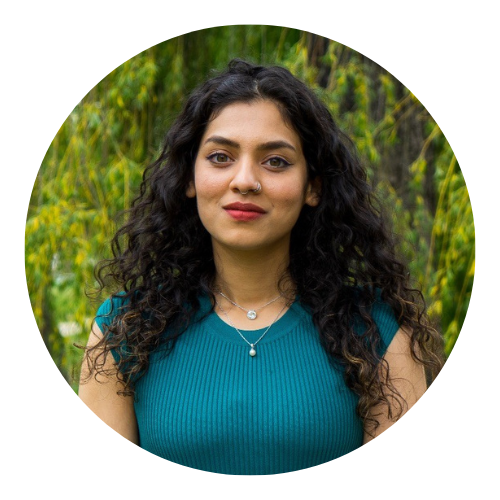
Over the past 20 years, Gerry’s research has focused on marginalisation as experienced by young people in Australia and other countries – at school, with their peers, and in the community. He’s particularly interested in amplifying young people’s voices through his research and supporting them to talk about their lived experience. We hear very little from young people themselves about how their experiences impact the opportunities available to them, and what they do to protect themselves and their families from the effects of poverty and marginalisation.
Gerry’s research does not offer ‘easy fixes’ to these problems of marginalisation. The purpose of his research is to focus the attention of people with power - advocates, policymakers and practitioners in health, education, community services and local government - on what young people themselves see as the challenges in their lives, and supports to help them overcome these challenges.
Gerry is a sociologist and social policy analyst. Before coming to Flinders in 2012, he worked at the University of Cambridge (UK), UNICEF Innocenti Research Centre (Italy) and the University of NSW. He has won over $5 million in funding, and has been Chief Investigator on six Australian Research Council (ARC) grants since 2009, most recently the Wellbeing in Adolescence project (2019-23) and the Opportunities and Contributions project (2023-26). He has authored over 50 journal articles, and has a Google Scholar H-index of 28. He has advised the Australian Bureau of Statistics and the Australian Institute of Health and Welfare on child, youth, gender and family statistics. He was recently a member of the ARC College of Experts (2020-2022). Most importantly, he advocates for amplifying the voices of young people who are the least heard but who have the most to gain from policymakers and others in power hearing them.
Qualifications
- PhD, Social Policy, University of NSW, Australia
- MSc, European Social Policy Analysis, University of Bath, UK
- Grad. Dip. (Computing), Athlone Regional Technical College, Ireland
- B.Soc. Sc., University College, Dublin, Ireland
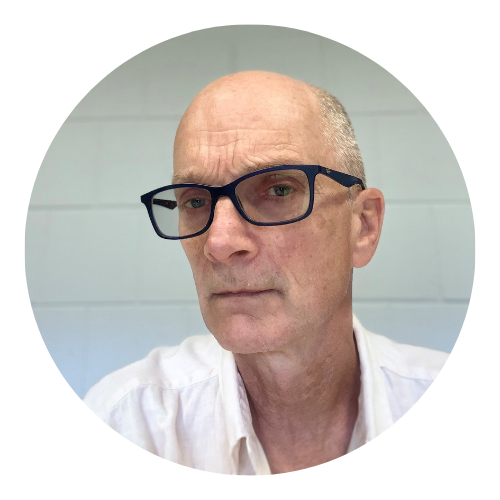
Zhibin Zhang joined Flinders University in July 2016. Prior to that he taught at Nanyang Technological University, Singapore. His primary research interests focus on comparative nonprofit studies and comparative public administration/policy. Specifically, his research covers a wide range of topics including nonprofit-government relations, governance reforms, and public policy and management, across China, Singapore, Australia, and the Asia-Pacific. He has been an Associate Editor of Nonprofit Management & Leadership since 2019.
Qualifications
- PhD in Public Administration, George Washington University
- MA in Public Administration, Renmin University of China
- BA in Chinese Politics, Renmin University of China

Tackle problems ... in space
Globally, the space sector is experiencing rapid growth.
Students can take our Outer Space Governance: Business, Policy, Law and Crime elective topic to build a solid foundation in space law and policy, and learn how to tackle problems in space through innovative, project-based learning.
Frequently asked questions
Potential occupations include:
- policy analyst.
- diplomat or public service officer.
- Journalist or digital media content maker/manager.
- international aid or development worker.
- electorate officer.
- research officer, analyst or assistant.
- intelligence, security or political analyst.
- risk manager or public relations specialist.
Political Science and International Relations are complementary and inter-related disciplines that explore power and politics in many different contexts. They provide concepts with which to explain, justify and critique the modern world. They examine ideologies such as colonisation and socialism.
There are multiple types of international relations. They include trade agreement, war, human rights organisation actions that operate in multiple states, multinational corporations, and other types.
International relations attempts to explain the interactions of states in the global interstate system, and it also attempts to explain the interactions of others whose behaviour originates within one country and is targeted toward members of other countries.
- You enjoy debating and engaging in challenging issues
- You want to make a difference in the world
- It's a great starting point in your career
- The unique skillset you develop will be in high demand
- You want to gain real-world experience
I am an
International Student
Australia or New Zealand.
I am a
Domestic Student
I'm an Australian Permanent Resident
(including Humanitarian Visa holders).
![]()
Sturt Rd, Bedford Park
South Australia 5042
South Australia | Northern Territory
Global | Online
CRICOS Provider: 00114A TEQSA Provider ID: PRV12097 TEQSA category: Australian University








